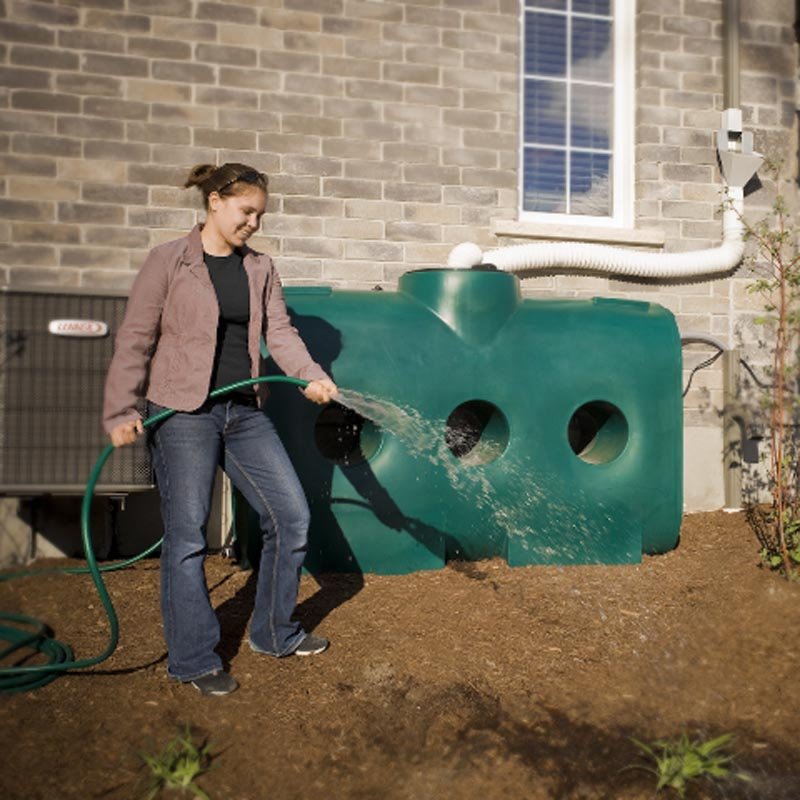The value of water is becoming increasingly important in Texas, particularly through the recent drought that Central Texas experienced in 2009. As ponds and lakes went dry, residents realized that much value resides in underground and surface water. But regardless of where water is stored, it all comes from the same place—rain that falls from the sky. And as such, it can be contained, harvested, or collected before vanishing before our eyes.
The Texas AgriLife Extension Service is offering a 1 ½ day course on the basics of rainwater harvesting on April 21 and 22 in Harker Heights. Even though the drought of 2009 in Central Texas may seem like a bad dream after a wet winter, there are many other good reasons to set up a rainwater harvesting system than an ongoing drought, said a Texas AgriLife Extension Service expert.
“For many who get their water from wells, it is security if the well is running dry,” said Brent Clayton, AgriLife Extension assistant. “For those on municipal water, it is a way to irrigate when restrictions come into place. Others do it for environment. Rainwater harvesting uses less groundwater.”
Collecting and using rain from roofs also lessens runoff that may carry pollutants into rivers and lakes, he said. On the first day, participants will learn all aspects of building and maintaining both passive and active-container catchments.
Passive catchments are landscapes that use rain as their only source of water. They include roof gardens, rain gardens, bog gardens and swales. Components of such systems will be shown, and participants will be walked through the steps of designing and building rain gardens and other passive-catchment systems, Clayton said.
Harvest systems range from small, simple and cheap to large, complex and relatively expensive. Participants will learn about all aspects of both, from how to modify a common 55-gallon drum for harvesting to building a 400-gallon flushable tank system, he said.
They will also learn how to cover, hide or decorate large tanks to make them more aesthetically pleasing, Clayton said. Tax incentives, building codes and landscape design will also be discussed.
On the second day, topics will include building a 170-gallon water trough tank, setting up solar-powered and AC pumps, incorporating drip-irrigation systems, and water rights.
The rainwater harvesting class will be held at the Harker Heights Activity Center, 400 Indian Trail, Harker Heights. Pre-registration is $150, which includes instruction, refreshments and training materials. Attendees can pre-register and pay online. They may also pre-register by contacting the AgriLife Extension office in Bell County at 254-933-5305. On-site registration the day of the program will be $175.
